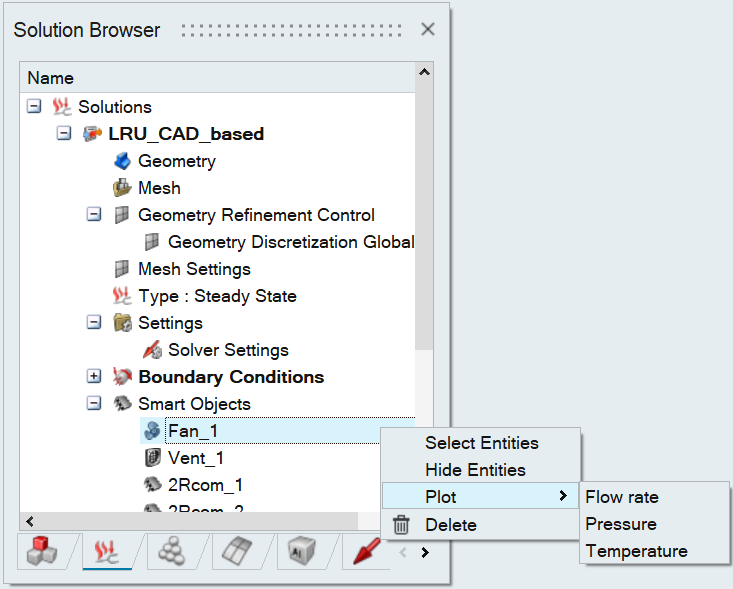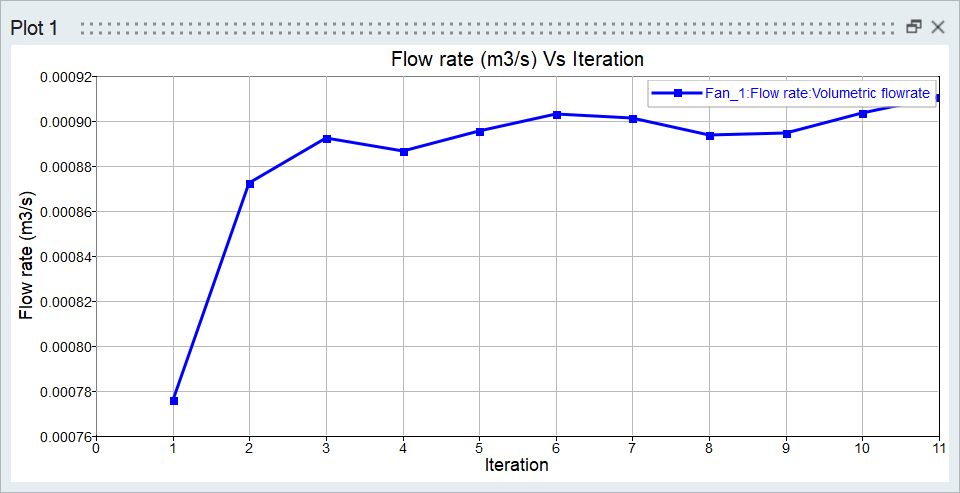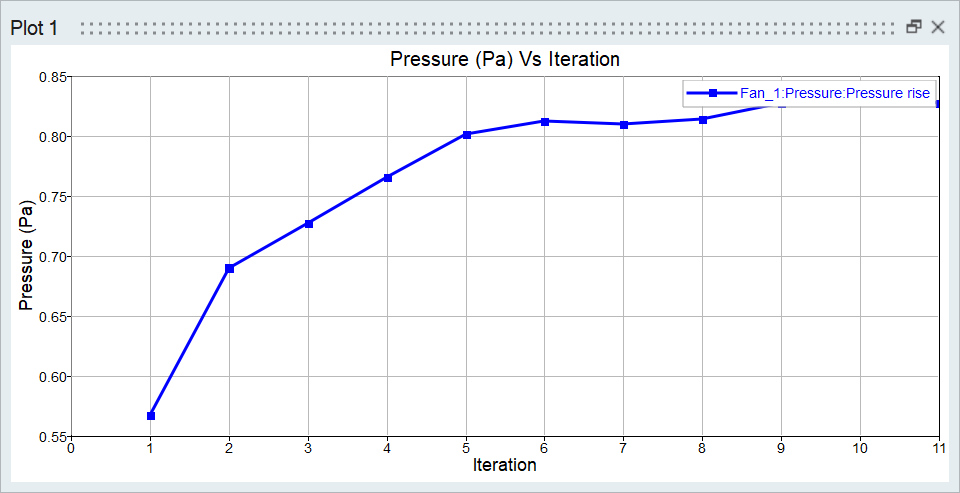Fan
![]()
Introduction
Fan Component is a Smart Object used define fan behavior in electronic systems.
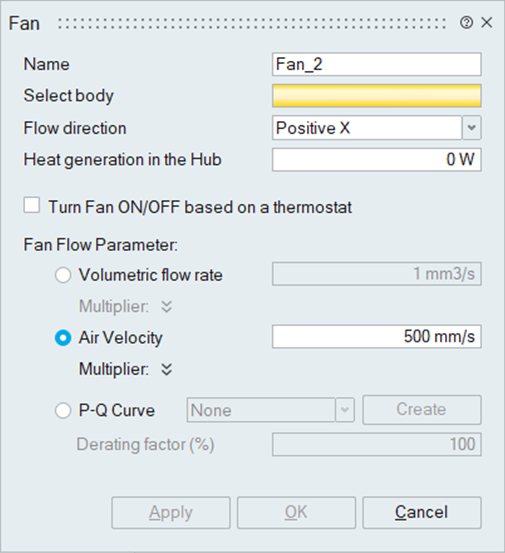
Description
- Fans are used to enhance convection heat transfer inside an electronic system by providing airflow to regions with high heat generation.
- In Electronics Thermal Management solution fans are considered Smart Objects.
- Fans should have a corresponding geometrical part in the 3D model
- Following fan types can be defined,
- Circular fan
- Rectangular fan
- Irregular fan fan

- The user selects the 3D body that define the fan.
- Fan flow may be applied as mass flow rate, volumetric flow rate or flow speed. Fan curve definition is under development and will be available in the next release.
- User can set the P-Q curve to define the fan flow.
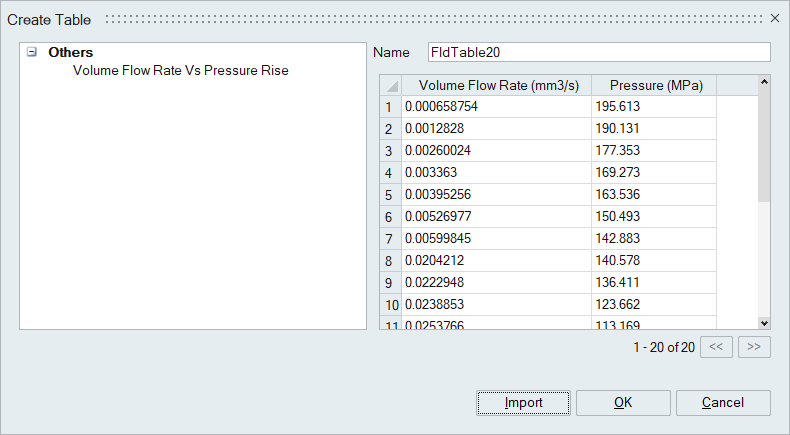
- The startup period iteration provides gradual fan speed for best flow stability
- The heat dissipation in fan hub can be included in the analysis
- Fan swirl may be included in circular fans. Checking ON this option results in modified form to enter swirl data
- The velocity across the fan cross section will be uniform, if user enables the "Uniform fan velocity" option
-
Fan Failure option can be selected to perform “Loss of Cooling” analysis. Once this option selected the form will simplify and the fan behaves like a Vent object.
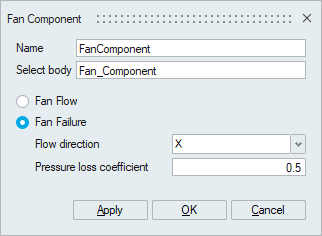
- Thermostat can be connected to the Fan to control the fan flow.
- Fan starts when the temperature read by the thermostat is higher than the ON Temperature.
- Fan remains ON until the thermostat temperature is lower than the OFF Temperature.
Graph plotting
Volumetric flow rate and pressure rise of the fan can be plotted by right-click on “Fan” under “Smart Objects” in solution browser. Temperature option does not apply for fans, and it will be hidden in next release.
